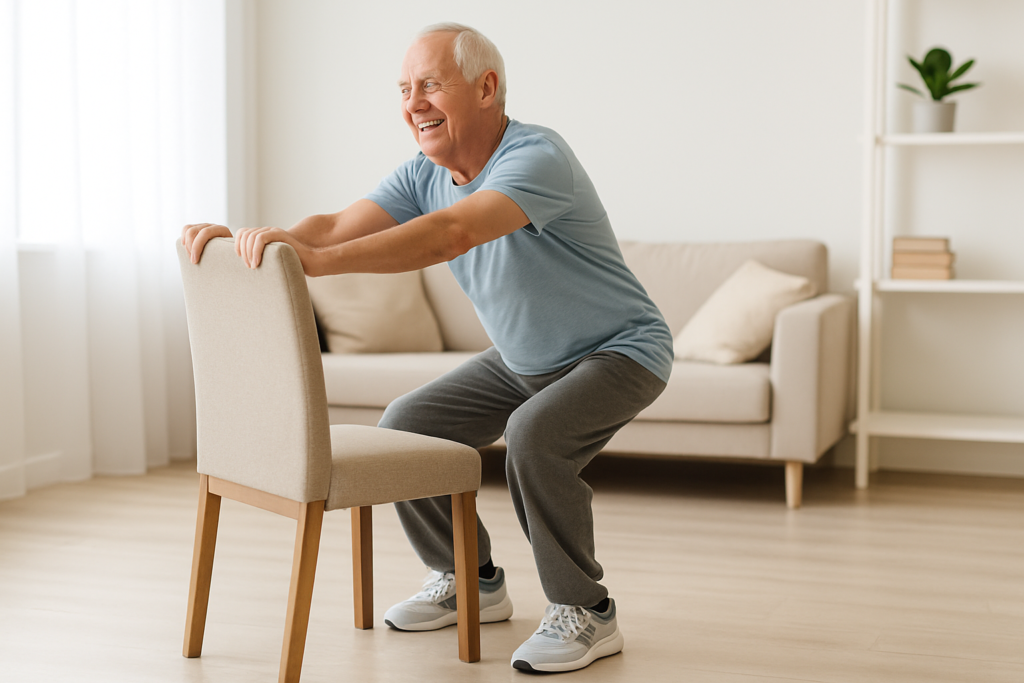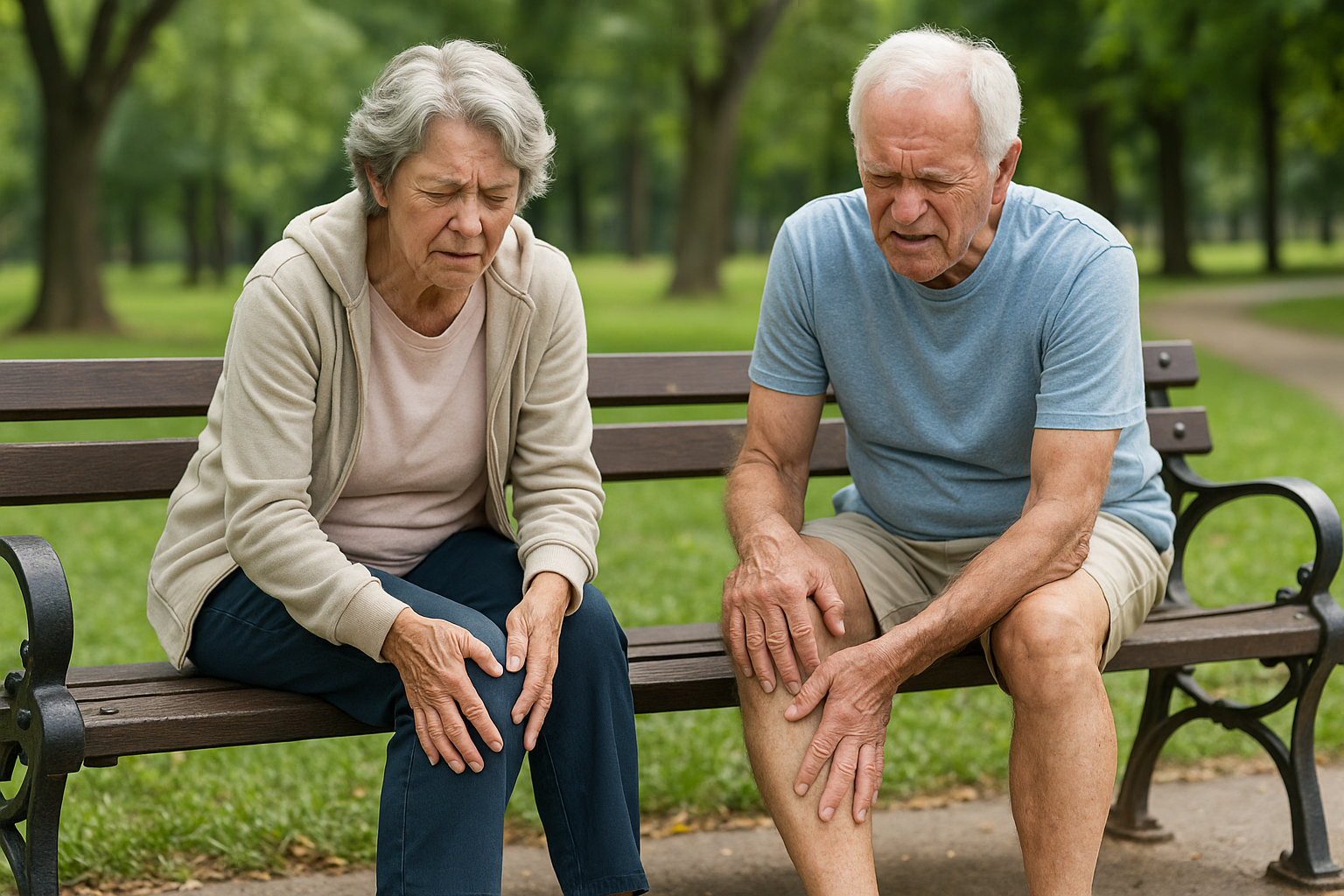Vitamins That Weaken Your Legs After 60: What to Avoid and Why
How Aging Affects Leg Strength
After the age of 60, it’s common to experience a gradual decline in leg strength. This weakening is directly linked to the natural aging process, which reduces muscle mass and interferes with motor coordination and balance.
This condition is known as sarcopenia, characterized by the progressive loss of muscle mass and strength, especially in the lower limbs. It can impair mobility and increase the risk of falls and serious injuries.
Inactivity, chronic diseases, and poor nutrition can further aggravate this problem. Therefore, maintaining strong legs requires a balance of physical activity and proper nutrition.
The Role of Vitamins in Muscle Health
Vitamins play a vital role in the proper functioning of muscles. They contribute to muscle contraction, bone health, and tissue repair. However, in people over 60, excessive or inappropriate supplementation can pose health risks.
Vitamins such as D, C, B12, and magnesium are essential for healthy muscles. But not all vitamins have a positive effect when consumed in excess. In fact, some can weaken the legs and impair quality of life in older adults.
Misuse of supplements is common among seniors, often influenced by promises of quick health improvements. However, improper intake can have the opposite effect.
The 2 Vitamins That Weaken Your Legs After 60

Contrary to popular belief, not all vitamins are safe when taken without supervision. In older adults, the body becomes more sensitive, increasing the risk of side effects. Below are the two vitamins that can weaken your legs when consumed excessively.
Excess Vitamin E: Risks and Side Effects
Vitamin E is known for its antioxidant properties. However, in high doses, it can negatively affect muscle and circulatory function.
Studies show that excess vitamin E can interfere with blood clotting, which reduces oxygen flow to the muscles. This may result in general weakness, especially in the legs, where circulation tends to be slower in seniors.
High doses of vitamin E over time can also cause low blood pressure and muscle fatigue, directly contributing to leg weakness.
Excess Vitamin A: Impact on Bone Density and Muscles
Vitamin A is essential for vision and immune function, but high levels can harm bone and muscle health. Too much vitamin A is linked to reduced bone mineral density, making the leg bones weaker and more prone to fractures.
Additionally, excess vitamin A can impair muscle regeneration, making it harder to recover after simple physical efforts. The result is a constant feeling of leg fatigue, making everyday tasks more difficult.
For this reason, older adults using vitamin A supplements should be monitored by healthcare professionals to prevent chronic toxicity and its impact on mobility.
Healthy Alternatives to Strengthen Your Legs
To avoid muscle weakening from poor supplementation, it’s essential to adopt safe and effective strategies. Seniors can naturally preserve leg strength through a combination of diet, exercise, and medical guidance.
Ideal Supplementation for Seniors
Not all supplementation is harmful. When prescribed correctly, it can be highly beneficial. Some vitamins and minerals recommended for leg muscle strength include:
Vitamin D: Essential for calcium absorption and bone strength
Magnesium: Supports muscle contraction
Vitamin B12: Prevents fatigue and supports nerve-muscle function
Omega-3: Anti-inflammatory properties that protect aging muscles
The key is to use supplements only with confirmed deficiencies and under medical supervision to avoid overdose risks.
Recommended Exercises to Maintain Leg Strength

Regular physical activity is indispensable. Lower-body exercises help prevent muscle loss and preserve independence. The most recommended include:
Daily walking
Chair-assisted squats
Step-ups
Resistance band training
Senior-friendly Pilates
Combining movement with proper nutrition is crucial for long-lasting quality of life.
How to Tell If Vitamins Are Weakening Your Legs
It’s not always easy to recognize when vitamins are the cause of leg weakness. However, some specific signs should raise concern and prompt action.
Symptoms That Vitamins That Weaken Your Legs Can Cause
Common signs include:
Constant leg fatigue, even after short activities
Heavy legs at the end of the day
Difficulty climbing stairs or standing up
Frequent dizziness or falls due to poor balance
Persistent cramps or tingling, especially at night
If you’re experiencing these symptoms and regularly take supplements—especially vitamin E or A—it may indicate overuse.
The Importance of Exams and Medical Supervision
Only proper clinical evaluation and blood tests can confirm if vitamin levels are too high. A simple test can detect excess and allow for correction before major problems arise.
Seniors should get their vitamin levels tested at least once a year. Supplements should be taken only after personalized evaluation, avoiding self-medication.
Routine monitoring is the safest way to maintain nutritional balance and preserve leg strength in later years.
Conclusion: Essential Care with Supplementation After 60
Strong legs are essential for autonomy and quality of life in older age. While vitamins play a crucial role in maintaining bone and muscle health, overuse—especially of vitamin E and vitamin A—can be harmful. Research shows that high doses of vitamin E increase bleeding risk and lead to muscle weakness, while too much vitamin A reduces bone density and causes fatigue. (msdmanuals.com – Vitamin E, Vitamin A)
To maintain strong legs after 60, remember to:
Avoid self-medicating: Always take supplements under medical advice.
Schedule regular checkups: Track your vitamin levels annually.
Eat a nutrient-rich diet: Choose foods that support muscle and bone health.
Stay physically active: Exercise helps maintain strength and balance.
With the right strategies, it’s possible to preserve leg strength and live an active, independent life after 60.
Recommended Internal Links
Foods That Help Seniors Sleep Better
Rest is essential for muscle recovery. Discover which foods help older adults sleep more soundly.
Read the full article
Foods That Promote Restful Sleep
Quality sleep supports healthy leg muscles. See which foods improve sleep quality.
Explore the list
Recommended External Link
The Dangers of Excess Vitamin E
Learn more about the side effects of vitamin E overdose and how to avoid them.
Read on MSD Manuals



No responses yet